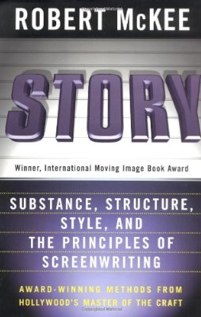Empathetic Heroes

Robert McKee’s Story: Substance, Structure, Style, and The Principles of Screenwriting is a fantastically written exploration of dramatic writing. I particularly enjoy his advice that all protagonists must be empathetic, if not necessarily sympathetic. He illustrates by examining Macbeth:
Macbeth, for example, viewed objectively is monstrous. He butchers a kindly old King while the man is sleeping, a King who had never done Macbeth any harm—in fact, that very day he’d given Macbeth a royal promotion. Macbeth then murders two servants of the King to blame the deed on them. He kills his best friend. Finally he orders the assassination of the wife and infant children of his enemy. He’s a ruthless killer; yet in Shakespeare’s hands he becomes a tragic, empathetic hero.
The Bard accomplished this feat by giving Macbeth a conscience. As he wanders in soliloquy, wondering, agonizing, “Why am I doing this? What kind of man am I?” the audience listens and thinks, “What kind? Guilt-ridden … just like me. I feel bad when I’m thinking about doing bad things. I feel awful when I do them and afterward there’s no end to the guilt. Macbeth is a human being; he has a conscience just like mine.” […] Macbeth is a breathtaking display of the godlike power of the writer to find an empathetic center in an otherwise contemptible character.
